Sport1st August 2015
World Deaf Tennis Championships a Huge Success on and off the Court
World Deaf Tennis Championship organised and managed with high levels of professional competence

Having been in and around Deaf sports for close to 30 years, at the end of the week long World Deaf Tennis Championships recently I was left with one over-riding feeling - WOW!! With most of the world's elite Deaf players travelling to Nottingham seeking to become the first ever World Champion, the competition was graced by players from 20 different countries. Underpinned by Deaf culture, players were there for the serious business of winning, but the majority of the players were also there to meet other Deaf competitors, to form new friendships and to take part in something that was designed with Deaf people in mind. Organised and run by The Tennis Foundation, the event had a feeling of professionalism, right the way from the facilities, officials, players and with the arrangements made for media people like me.
 Held between the 20th and 26th July 2015, this inaugural competition took place in the elite sporting venue of the Nottingham Tennis Centre. If you haven't been there it is impressive with lots of outdoor courts and some great indoor facilities too. With other wonderful sporting facilities adjoining the tennis club, the World Polo Championships were being held within a stones throw, all adding to the sense of occasion that is often missing at some national and international Deaf events.
Held between the 20th and 26th July 2015, this inaugural competition took place in the elite sporting venue of the Nottingham Tennis Centre. If you haven't been there it is impressive with lots of outdoor courts and some great indoor facilities too. With other wonderful sporting facilities adjoining the tennis club, the World Polo Championships were being held within a stones throw, all adding to the sense of occasion that is often missing at some national and international Deaf events.
Whilst the facilities were excellent, the organisation of the event was of an equally high standard, specific plans having been made for the different groups of people involved in the event. The players enjoyed private eating and rest areas, transport to and from hotels and the venue, warm-up facilities, as well as off-court activities such as pool and table tennis. One of the indoor tennis areas had been turned into a mini village with clear sign-posting on display so that you knew where to go for what and there were a good number of sign language interpreters available, including international sign language users, for those who needed them.


Bearing in mind this was the first ever World Deaf Tennis Championships, I hope that everyone who came along left the event with similar feelings to myself - this is what all top-level Deaf sport should feel like.
 Incorporating both the adult and youth World Championships, the event attracted seasoned players and the up and coming youngsters. Some of the players had grown up Deaf, whilst others had become Deafened later in life, with qualification maintained at the internationally recognised sport standard of 55DB loss in the players' best ear. Off the court, players ranged from oral with hearing aids and Cochlear Implants chatting away as though this was a hearing tournament, to born Deaf and sign language users, but there was no hint of hierarchy here. In the doubles competition, and in chatting to coaches, some players used voice and lip-reading to discuss strategy, whilst others signed to each other. This was a competition that welcomed all types of deafness.
Incorporating both the adult and youth World Championships, the event attracted seasoned players and the up and coming youngsters. Some of the players had grown up Deaf, whilst others had become Deafened later in life, with qualification maintained at the internationally recognised sport standard of 55DB loss in the players' best ear. Off the court, players ranged from oral with hearing aids and Cochlear Implants chatting away as though this was a hearing tournament, to born Deaf and sign language users, but there was no hint of hierarchy here. In the doubles competition, and in chatting to coaches, some players used voice and lip-reading to discuss strategy, whilst others signed to each other. This was a competition that welcomed all types of deafness.

With singles and doubles titles up for grabs in both the adult and youth competitions, the week-long schedule was a busy one, with some of the best players competing for all three titles available to them. For players knocked out in the first round, their names went into a draw for the consolation competition, ensuring that all players would play at least 2 games during the competition. With the seeded players joining the singles and doubles competitions in the second round, the first round presented players with a good opportunity to progress in the competition.
Generally, the players knew each other fairly well, with seedings decided by results in previous ranking competitions. There was the odd player like Emily Hangstefer from America who had not played enough games to get a seeding but who were clearly one of the better players taking part. For Britain's Bethany Brookes, who was drawn against Hangstefer is the first round, it made for a tough draw, but it did at least give her a great run in the consolidation competition, a run that would take her all the way to winning that competition.


A week long competition in the British Summer is always going to have a little bit of bad weather but generally the games were played outdoors, easily allowing spectators t move from one game to another. Taking my place court-side, I wondered how the umpire would signal to the players and the spectators the score and cause points to stop when the ball was adjudged to be out. Pleasingly, every umpire taking part had been taught the sign language they needed to call the score, 15 - 0, 30 all, etc and to indicate when the ball was out. Like some other Deaf sports, it was also good to see the players take an active role in helping the opposing player know when the ball was signalled out.
Signifying the status of Deaf Tennis in all of the countries taking part, nearly every player was dressed in national kit, had a coach and even a team around them, helping them to give their best during the competition. Whilst it is far from the case in the UK, I learned that deaf sports in some countries are given equal status and equal funding to the mainstream equivalent and I found myself wondering how completely amateur tennis players were expected to compete with players who could train every day and access the best support in respect of fitness, diet, health etc.


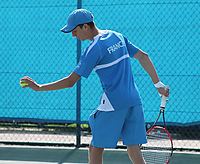


Funding politics aside, the competition was played in great spirit and the standard of play was fantastic. With a mixture of young and old taking part throughout the week, it was great to see the continuity of the sport all in one place with the youngsters having the senior players there as role models. Despite the intense nature of the competition, players, coaches and organisers were prepared to give me time and to chat about the competition and themselves, all adding to the positivity that seemed to surround the event and all the people involved.
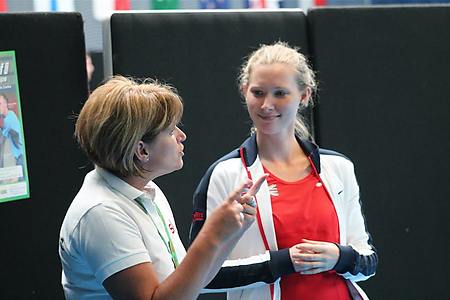


In the men's competition, third seed Egor Panyushkin, a bright young 21 years old Russian player, currently studying in America won through to the final where he was able to overcome strong resistance from the more experienced 28 years old French player Vincent Novelli, in becoming the first ever World Deaf Tennis Champion.
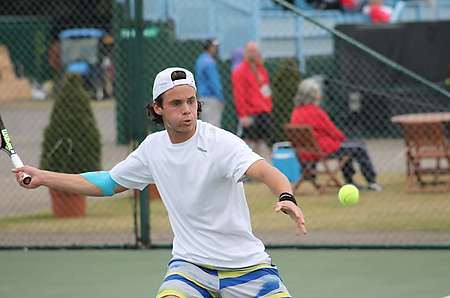
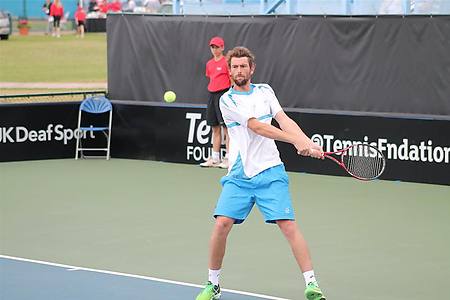

The ladies title went to the delightfully named Beatriz Villamandos-Lorenzo from Spain who edged out American Emily Hangstefer in a high quality final.



The men's doubles went to the wire with the French pair of Mikael Laurent and Vincent Novelli beating their close European challengers Robert Gravogl and Mario Kargl from Austria, the French paid taking the third and final set 7-6 on a tie break.
American Emily Hangstefer and her women's doubles partner Laura Chapman, the current Deaflympics champions, were to miss out on the World Championship crown when they were beaten in the final by Chinese Tapai pairing Chui-Mei Ho and Chia-Wen Lin.
Completing an exhausting personal schedule, Emily Hangstefer did at least pick up the Mixed Doubles Title playing alongside her husband Daniel Hangstefer, and gaining revenge on Chui-Mei Ho in the process, Ho playing with her hard hitting partner Chun-Wei Wang.

For the British supporters there were successes in the Junior Championships with Esah Hyat, who thrilled everyone concerned with Deaf Tennis when he picked up the Boys title and the elegant Bethany Brookes who put in a powerful display to win the Consolation Ladies Final with a determined display during strong winds to beat Anastasiya Grin from Russia.

Past players commented favourably on the event and of the work being done to strengthen Deaf Tennis in the UK. Esah Hyat showed the extent of talent available in the UK and with the pathways now in place, there is every chance that this young man will be competing strongly for the men's crown in years to come. Key now, is for mums and dads of deaf children to know about the opportunities within Deaf Tennis and Deaf Sport more widely, and to give their children the opportunity to participate on a level playing field with others involved.
Having had a fantastic time at Nottingham, I would just like to say thank you to all those people who worked so hard to make the event such a success and for the professional way we were treated throughout. It's a huge thumbs up from me!

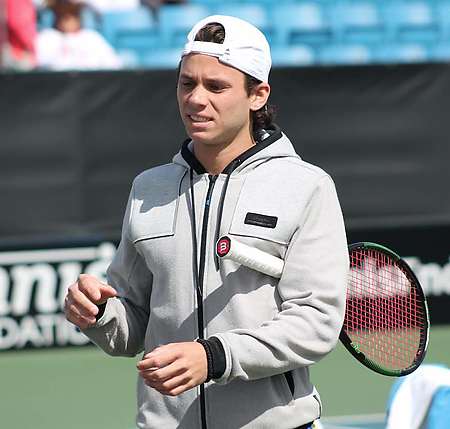
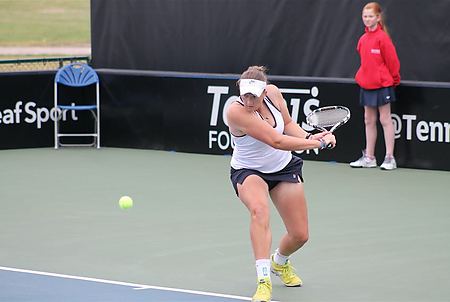



Article by Sarah Lawrence, Editor
posted in Deaf Sport / Sport
1st August 2015





